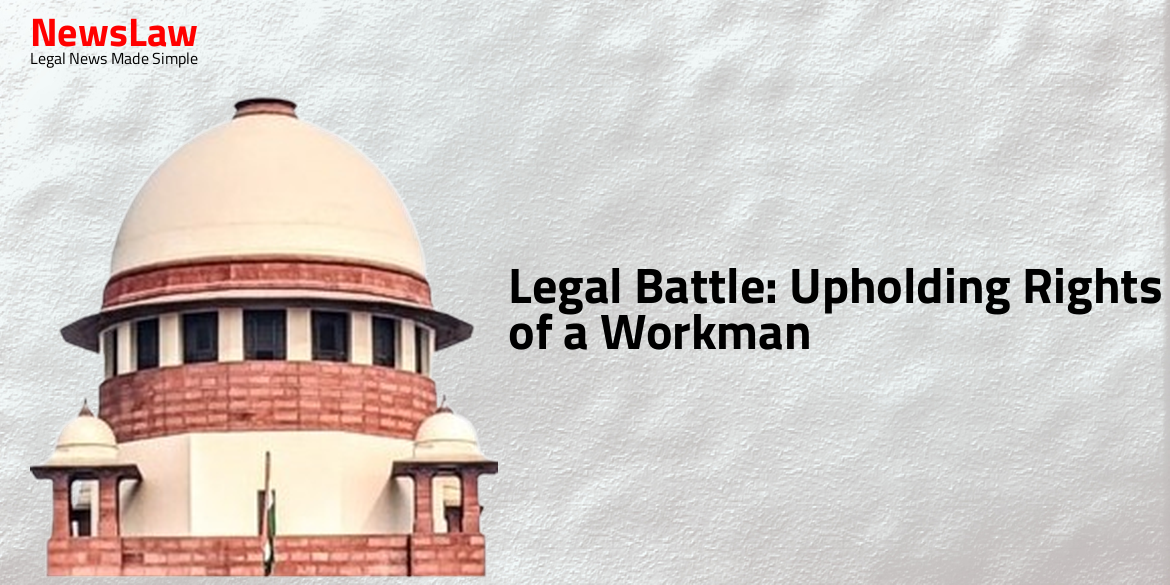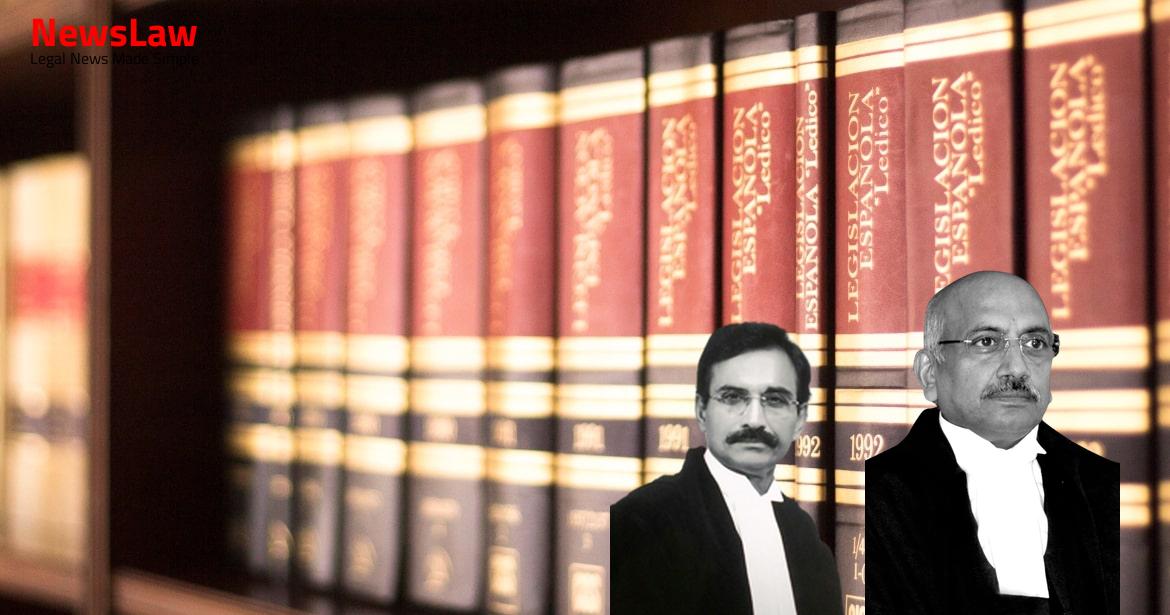In a recent legal case, the court delves into the concept of contempt of court in a land dispute scenario. The focus is on the court’s legal analysis, emphasizing the significance of maintaining the sanctity of the judicial process and preventing any actions that may obstruct justice. Follow along for insights into how the court addressed these critical aspects in the case at hand.
Facts
- The appellant filed a Regular Civil Suit in 2014 for declaration and permanent injunction against 264 defendants, including the present appellant.
- The lease deed of the subject property was cancelled in 1956 by the Original Owners.
- Legal heirs of Bapusaheb Bajirao Sawant filed Special Civil Suit in 1972 to claim possession of the land in question based on the lease deed.
- A compromise agreement was reached between the heirs of Bapusaheb Bajirao Sawant and the Original Owners in the said suits.
- In 1986, the appellant bought 20 acres of land in Survey No. 506 via a registered sale deed.
- The suit filed by the respondents against 264 defendants involves a claim over 2082 acres of land in Survey Nos. 505, 506, and 507.
- The appellant sent legal notices to all respondents in 2015, urging them to withdraw the suit in light of the consent decree from 1972.
Also Read: Legal Analysis: Abetment to Suicide Case
Arguments
- Shri Amar Dave, Senior Counsel, argued that the High Court’s finding that filing a suit cannot constitute contempt is incorrect.
- He cited the case of Delhi Development Authority vs. Skipper Construction to support his argument.
- He contended that in the present case, a lawsuit led to a compromise and a consent decree, making the filing of new suits an attempt to undermine the judicial process.
- The Senior Counsel highlighted that the appellant was not a party to the consent decree from 1972, and thus cannot claim contempt.
- On the other hand, Shri Nachiket Anil Dave, counsel for the respondents, argued that the filing of suits against the consent decree, approved by the Court, amounts to contempt of court.
- The High Court rejected the petition of the present appellant stating that the filing of a civil suit by the respondents did not breach the consent terms.
- The act of filing the civil suit may be seen as annoyance or nuisance to the appellant, but it does not amount to contempt.
- Various disputed questions of fact and law are pending adjudication in the civil suit RCS No 645 of 2014.
- The appellant’s filing of the contempt petition was viewed as an attempt to preempt the civil suit.
- The civil suit filed by the respondents is to assert their rights over ancestral agricultural land, while the appellant’s claim is limited to purchase of 20 acres in Survey No 506.
- Preliminary issues of limitation and res judicata were framed in the civil suit based on an application by the appellant.
- An application was also filed for dismissal of the civil suit with 264 defendants, with the contempt petition filed by only one of them.
Also Read: Analysis of Dying Declaration in a Criminal Case
Analysis
- The court highlighted that the plaintiff filed the suit against multiple defendants, including the present defendants, who are necessary parties in the suit.
- Several interim orders were passed, including one that allowed the petitioners to resume construction after deposits and prohibited the creation of third-party rights.
- Skipper Construction’s actions, such as issuing advertisements to create third-party rights, were found to be in disregard of the court’s orders.
- The court rejected an application for framing preliminary issues, emphasizing that it involves a mix of questions of law and facts that require evidence to be decided.
- Despite previous legal proceedings and the finality of certain orders, Skipper Construction continued to file suits and petitions, leading to allegations of contempt of court.
- The court addressed the dismissal of Skipper Construction’s petitions and suits, noting instances where they attempted to obstruct justice or abuse the court’s process.
- The conduct of the contemners, including Skipper Construction, was scrutinized for disrespecting the authority and administration of law.
- The Court heavily criticized persons engaging in obstructionist methods to defeat or delay justice.
- Filing a suit to protect the rights of contemners after the matter reached finality by the Court’s orders was deemed as criminal contempt.
- Minor abuses of the court process may be addressed between parties through actions like striking out pleadings, but serious abuses that make a mockery of the judicial process may warrant criminal contempt.
- Criminal contempt arises when conduct is specifically intended to impede or prejudice the administration of justice, even if the intent is not explicitly stated.
- Lord Hardwicke emphasized the importance of maintaining clear and pure streams of justice to ensure parties can proceed safely with their cases.
- The contemners in this case were deemed guilty of criminal contempt by the Court.
- Filing the suit for asserting the rights of the plaintiffs/respondents does not amount to contempt of court.
- No interference is warranted in the impugned order.
- The observations made are restricted to the maintainability of the contempt proceedings.
Also Read: Analysis of Burden of Proof in Recovery Case
Decision
- Appeal dismissed.
- The proceedings of the suit will be decided on its own merits.
- Pending applications, if any, stand disposed of.
- No order as to costs.
Case Title: M/S SHAH ENTERPRISES THROUGH PADMABEN MANSUKHBHAI MODI Vs. VAIJAYANTIBEN RANJITSINGH SAWANT (2024 INSC 182)
Case Number: C.A. No.-003865-003865 / 2024



